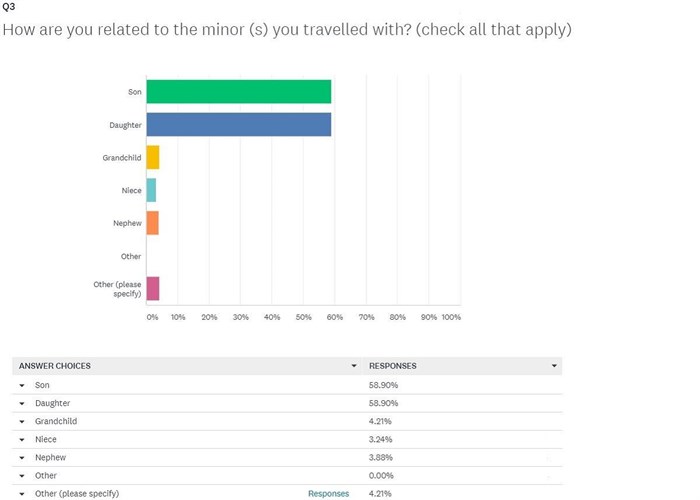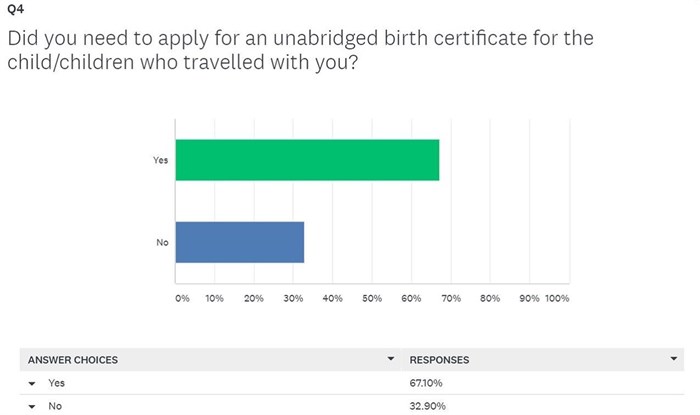
Top stories






More news

















Logistics & Transport
Uganda plans new rail link to Tanzania for mineral export boost








In 2014, the Department of Home Affairs announced its intention to introduce new unabridged birth certificate rules for minors travelling to and from South Africa. After a few postponements, in June 2015 the regulation was rolled out at borders across South Africa as tourism industry members scrambled to comply with what many were calling a death knell for South African tourism.
Announced by recently redeployed Home Affairs Minister Malusi Gigaba, three years and a few ministers later, unabridged birth certificates are still a point of contention for the travel trade, including airlines and travel agents, who provide a service to inbound and outbound clients.

While the unabridged birth certificate has several layers of administrative complexity for the travel trade locally and abroad to navigate, in a nutshell, the regulation requires all travellers travelling with minors (under the age of 18) to produce an unabridged birth certificate, and a letter of parental consent if the child is not travelling with both parents, when departing from and arriving in South Africa. In South Africa, the first issue of an unabridged birth certificate is free. Thereafter, it costs R75 and a trip to Home Affairs to get one.
The regulation affects all travellers, regardless of nationality, who travel to and from South Africa with children. It’s a demanding expectation of foreign families, particularly those who book trips to South Africa without having heard of the documents required to board a flight with children.
Near the time the regulation came into effect, the Department of Home Affairs said 30,000 minors were trafficked through South African borders – land, sea and air – annually. 50% of these minors were said to be under the age of 14. Those statistics equate to 82 trafficked children every day.
While those numbers are alarming, there is no credible evidence to support them and data that does exist tells a different story. For example, data from the South African Police Service's Bureau for Missing Persons listed 996 minors reported missing in 2016.
Notwithstanding wildly conflicting statistics on the subject, child trafficking is notoriously invisible and therefore it’s difficult to collect concrete facts. The Prevention and Combating of Trafficking in Persons Bill of 2013 says: “A person has to be delivered, recruited, transported, transferred, harboured, sold, exchanged or leased within or across the borders of South Africa,” to constitute trafficking and be punishable by law.
New research by Travelstart investigates how unabridged birth certificate regulation impacts traveller experience. Travelstart surveyed over 500 travellers, precisely those who have travelled with minors in the past two years, to identify practical pain points caused by unabridged birth certificate regulation.
Survey 1: Travelstart South Africa customers
Travelstart South Africa customers were the primary research subjects to gauge the impact of unabridged birth certificates on traveller experience. Using database segmentation, only those people who have travelled overseas with minors under the age of 18 years in the past two years were approached, by way of email and an online survey.
The survey was unincentivised and included eight questions with the second question being a qualifying question to ensure the unabridged subject was familiar and relevant to participants. The sample size was approximately 6,000 and the number of respondents totalled 559. The survey ran from 12 February to 12 March 2018.
Survey 2: Travel trade
The South African travel trade were engaged via separate online surveys. “The trade” refers to travel agents, independent travel consultants and airline representatives – each of which were approached with a separate survey and respondents were assured anonymity.


Answering ‘No’ to question two ended the survey thus disqualifying respondents who have not travelled with children in the past two years.






67% of respondents said they needed to apply for an unabridged birth certificate to travel. Furthermore, 41% of the 67% said their application took more than six weeks to process adding hassle, stress and cost implications to travel outside South Africa.
27% said they encountered administrative problems relating to the unabridged birth certificate; most respondents encountered problems when departing South Africa. Survey participants cited immigration (55%) and check-in (42%) as the points in their journey where they experienced problems. Most airline representatives were reluctant to comment about unabridged birth certificates saying: “It is a sensitive matter and they are only applying the rule set by government.”
Two well-known airlines that fly to South Africa daily from hubs overseas confirmed their passengers experienced problems regularly and pointed to a lack of training for immigration officials and confusion at certain stations being the primary cause of unabridged issues. From the airlines perspective, most problems occur at immigration and check-in aligning with passengers’ experience. 29% of travellers said they have been denied boarding in the past two years because of unabridged birth certificate regulation.
In addition to engaging customers, Travelstart engaged members of the SA travel trade including independent travel consultants and those working for retail travel agencies. Travelstart found that foreign families travelling to South Africa are most negatively affected by unabridged birth certificates. Everywhere in the trade consultants have unabridged-related horror stories to share and 50% agree customers are confused by the regulation.
Almost two-thirds (67%) of surveyed agents said their clients have been affected by unabridged birth certificate regulation with foreign families travelling to South Africa (67%) and single mothers (33%) being the most negatively affected.
While the effect of the water crisis on tourism has not been measured, in February, Cape Town Tourism CEO Enver Duminy indicated that the sector is under pressure and that there has been a lot of cancellations from domestic and international travellers – the drought has been widely publicised in South Africa’s key tourism markets as the world observes how the city will handle the unique crisis.
According to Aviation Barometer, published every quarter by Airports Company South Africa, growth in passenger numbers at nine airports held steady at just over 3% in the fourth quarter of 2017. International arrivals increased by 3.80%. Cape Town International Airport showed extraordinary growth in international passengers over the peak holiday season – international arrivals went up by 13.85% compared to the same period in 2016.
Despite growth, unabridged birth certificates continue to prevent families from travelling. In many cases, travellers and airline staff at overseas origin airports are left to fend for themselves with the onus being on the traveller to carry the correct documentation. Most airlines flying to South Africa have adopted measures to protect passengers including making information available online, during bookings and educating their staff, although none of these are failproof.
“Tourism currently sustains 700,000 direct jobs and is performing better than most other growth sectors. There is no reason why it can’t double in size. We have the most beautiful country in the world and the most hospitable people." These were the optimistic words of Cyril Ramaphosa on 16 February as he delivered his first State of the Nation address as President of the Republic.
If unabridged birth certificate regulations were initiated based on anecdotal information, then there is a clear need for a reliable analysis and a pointed remedy. As the case above demonstrates, the regulation is negatively impacting the tourism experience and more than likely deterring willing participants from a sector thirsty for growth.
In addition, human rights lawyers have said unabridged birth certificates won’t prevent child trafficking as, “real human traffickers don’t follow legitimate and documented methods of travel but cross the border in illegitimate and clandestine circumstances. Therefore so-called ‘innocent’ people may be on the receiving end of regulations intended to target human traffickers.”
As the potential for growth in the sector is more than apparent and needed to boost jobs and the economy, those working in South Africa’s travel trade remain hopeful that revising the need for superfluous unabridged birth certificate regulations forms part of South Africa’s new dawn.